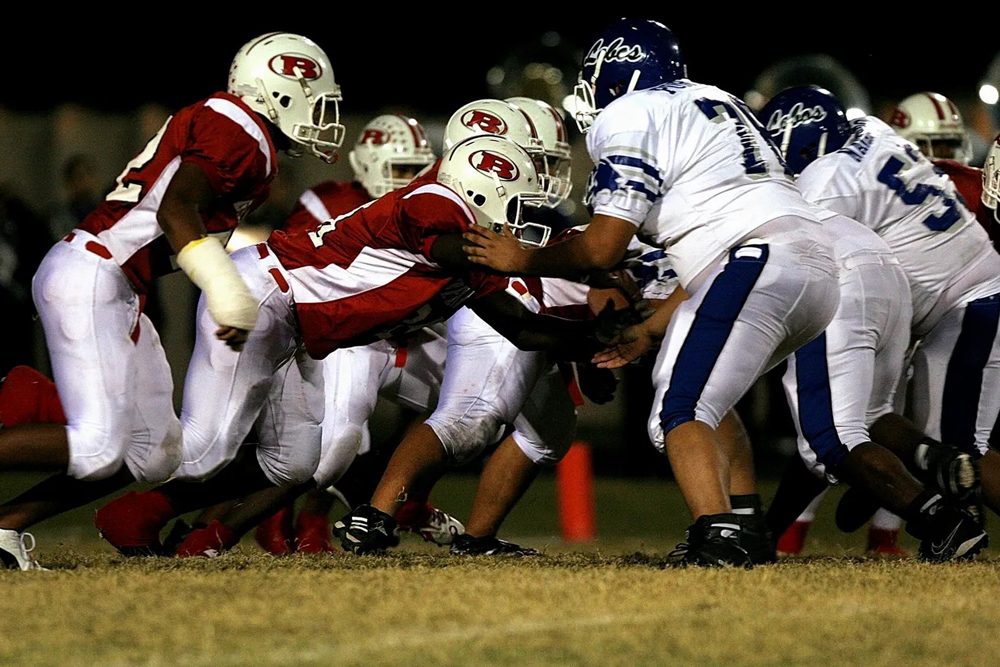by Alana Gregg, MS
I’m just gonna throw this out there…I’m a New York Giants fan. I know, I know. You can take the girl out of Jersey but you can’t take the Jersey out of the girl. Don’t worry, my husband has already brainwashed my kids to be Philadelphia Eagles fans. Think about the Eagles defensive line. Their job is to make sure that no one gets through and that the other team doesn’t score. Sometimes they rush the quarterback and sometimes they hang back and try to keep the offense contained. But either way their job is the same, protect their end zone.
Defense mechanisms function in the same way. They protect us from getting hurt or from an undesired outcome. They can also temporarily help us to cope with difficult feelings. But defense mechanisms can be destructive as well if we allow them to take deep root. They can distort reality, and they can impact our relationships. They can also be dangerous because sometimes we subconsciously use these defenses without knowing it.
Here are 8 common defense mechanisms you may be using:
- Denial. When you are dealing with something that’s really painful, it can be too much to accept. It seems easier to pretend it never happened or block it out of your mind completely. You can’t accept reality so you create another reality instead.
- Repression. When something is really painful, sometimes we push down those feelings inside of us. You lock them up in a box in your subconscious and don’t let them out. Many people who have suffered trauma or abuse as children have used this defense. It can keep you functioning and allow you to go on for a while, but eventually, those repressed feelings will come out in other ways and impact your life in a negative way.
- Rationalization. This is when you justify your behavior. You convince other people and even yourself that what you are doing is ok. Deep down you may know that what you are doing is wrong but you don’t want to deal with the guilt and shame.
- Blaming. This happens when you point the finger at other people instead of taking responsibility for what you did wrong. More often than not in disagreements, both people have something to take responsibility for. If you are constantly finding fault with others and never with yourself, odds are you are using this defense mechanism.
- Minimizing. This is when you downplay your problems or make them seem smaller than they are. You say things like, “It’s not that bad.” Or you make comparisons like, “At least, I didn’t do what that person did.” If many of your statements start with “I only…,” odds are you are using this defense mechanism.
- Displacement. This is when you take your frustrations and feelings out on other people that are less threatening. For example, if you had a bad day at work and were yelled at by your boss, then you went home and yelled at your family. The person you are really angry at is your boss but you are taking your anger out on your family because they can’t fire you.
- Projection. This is when you attribute unwanted thoughts and feelings that you have to someone else. For instance, if you don’t like someone but you convince yourself that they don’t like you. You are trying to work out your feelings but in a way that seems safer to you.
- Isolation. You may be experiencing a lot of pain or shame and so you completely remove yourself from people. This is the last of the defenses because once you have removed yourself from all connection, no more excuses need to be made. You can do as you please without other people telling you that what you are doing is unhealthy.
Ask yourself: what is that defense doing for you? What are you trying to protect yourself from? Be honest with yourself and others. It can be difficult to take an honest look at your flaws and see where you need to change.
Start Counseling in Montgomery County, PA
At Lime Tree Counseling, we understand that defense mechanisms are like cracks in a foundation of a house, they are easier to deal with when they’re small. If left alone, the crack becomes bigger and bigger until eventually the house begins to collapse. At our office in Ambler, PA, our trained counselors offer a judgement-free space to help you work through those things you have been too ashamed to tell someone or talk about those things that have been too painful to deal with for a long time. We also offer trauma counseling as well as marriage and family counseling. Don’t continue to use defense mechanisms that are hurting you and pushing people away. Call today to schedule an online appointment or for a free 15 minute phone consultation.

